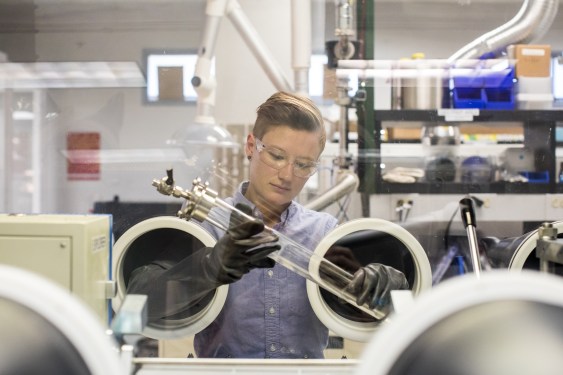The Biden-Harris administration, through the Department of Energy (DOE), has announced a significant investment in the domestic battery supply chain. A total of 20 battery companies will receive a combined $2.8 billion to build and expand commercial-scale facilities in 12 states. This is the first phase of a larger $7 billion initiative from President Biden’s Infrastructure Law, aimed at strengthening domestic battery supply chains and reducing reliance on China for battery production and supply.
The Importance of Domestic Battery Supply Chains
As more vehicles become electrified, the demand for batteries and their components continues to grow. However, the global supply chain for these critical materials is increasingly concentrated in countries like China. This has raised concerns about security of supply, energy efficiency, and environmental sustainability. The DOE’s investment aims to mitigate these risks by supporting the development of domestic battery supply chains.
The Companies Receiving Funding
While the DOE did not specify which companies received funding, Gene Berdichevsky, co-founder and CEO of battery chemistry company Sila, revealed that his startup received $100 million from the fund. Sila is working on replacing graphite in batteries with silicon, which offers several advantages over traditional materials.
Benefits of the Investment
The federal investment will be matched by recipients to bring in more than $9 billion to boost American production of clean energy technology. This will support President Biden’s goal of all new vehicle sales being electric by 2030. The DOE has set a series of goals for the selected projects, including:
- Developing enough battery-grade lithium to support about 2 million EVs annually
- Enough graphite to support 1.2 million EVs annually
- Enough nickel to supply about 400,000 EVs annually
Battery Recycling: A Key Component
The funding will also help install the first large-scale, commercial lithium electrolyte salt production facility in the U.S. and the first lithium iron phosphate cathode facility in the U.S. Among other facilities. Battery recycling is a critical component of this initiative, as it can significantly reduce the demand for primary materials.
Gene Berdichevsky’s Insights
At TechCrunch Disrupt, Gene Berdichevsky discussed his company’s plans to deliver 10 gigawatt-hours of capacity annually at its upcoming Moses Lake, Washington facility. He emphasized that Sila’s approach is not only more efficient but also avoids the supply chain constraints associated with sourcing graphite from China.
Related Developments
The DOE’s funding announcement comes on the heels of President Biden signing the Inflation Reduction Act into law. This legislation includes stipulations for consumers to qualify for EV tax credits, including the need for critical battery materials to be sourced domestically or in free trade agreement countries.
Conclusion
The DOE’s investment in domestic battery supply chains is a significant step towards reducing US reliance on China and strengthening energy security. With a combined $2.8 billion from 20 companies, this initiative has the potential to make a lasting impact on the clean energy landscape.
Related Articles
- Can Battery Recycling Help End US Reliance on China? Link
- Trump Administration Might Give a Boost to Deep-Sea Mining for Critical Minerals Link
About the Author
Rebecca Bellan is a Senior Reporter at TechCrunch, covering transportation and related topics. She has previously written about social media for Forbes.com and her work has appeared in various publications, including Bloomberg CityLab, The Atlantic, and Mother Jones.



